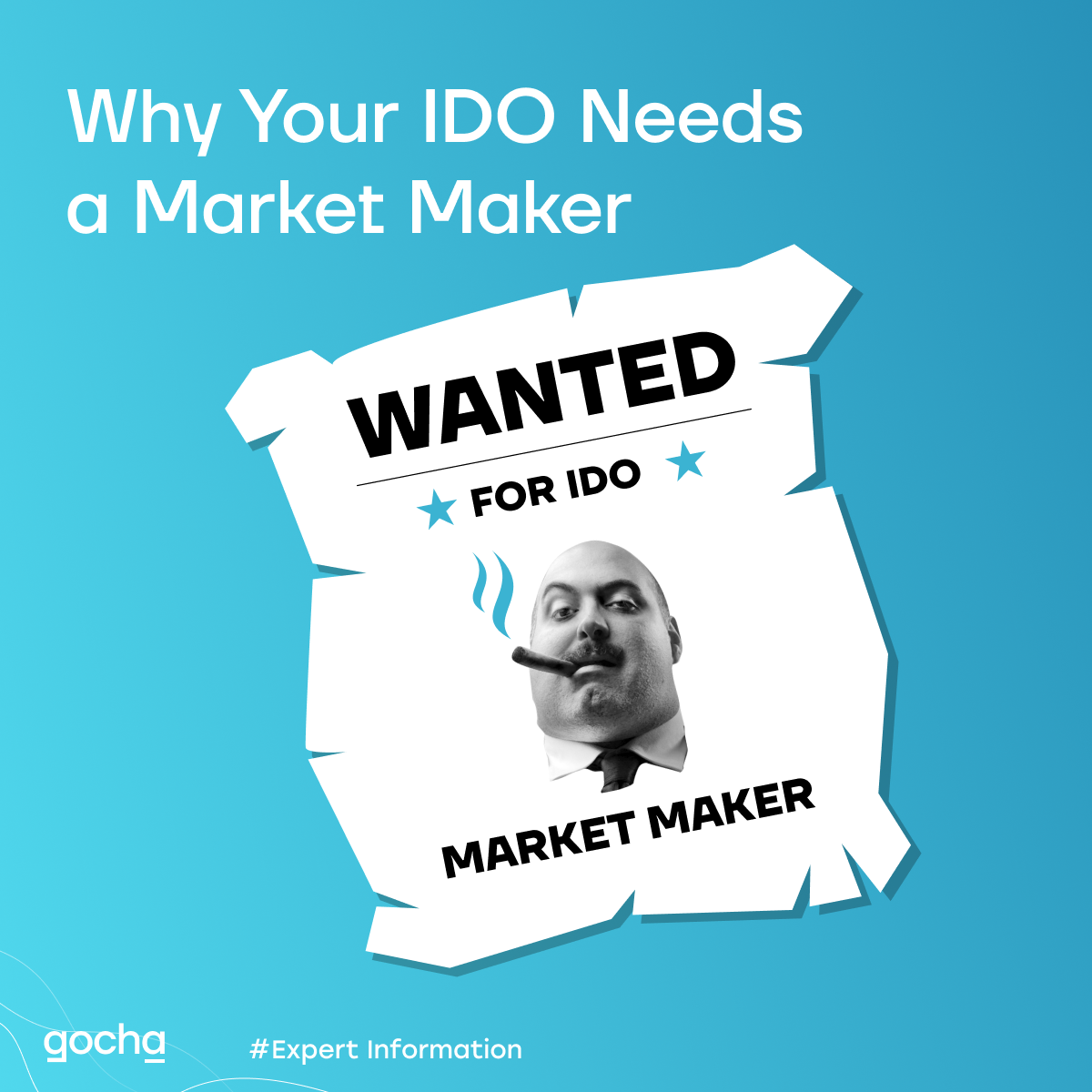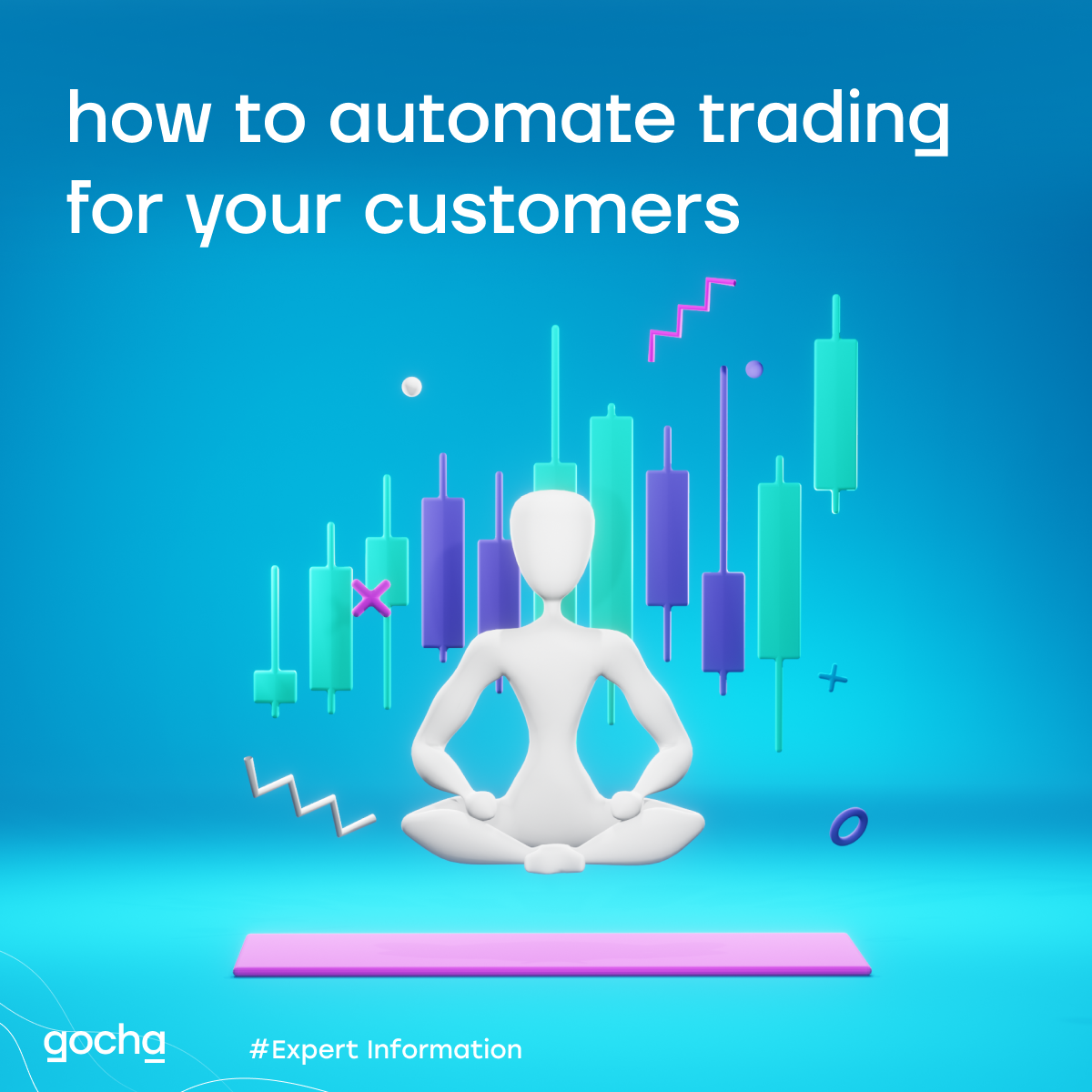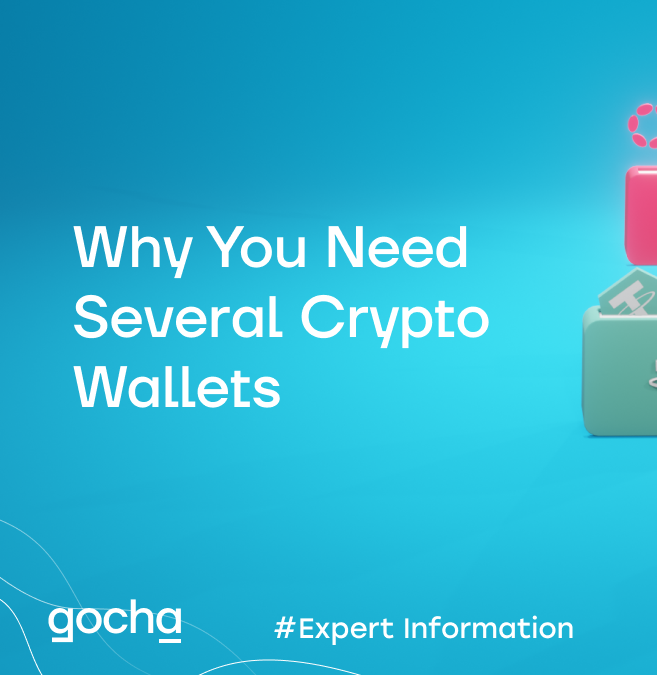The Option You Need: Choose a Market Maker For a Token

Market makers play a key role in increasing the accessibility and liquidity of cryptos to investors, traders, and participants of the market around the world.
A market maker is a participant that creates liquidity for tokens by placing transactions and controlling the price of assets on the market.
Market-making service is an activity whereby a trader simultaneously provides liquidity to both buyers and sellers in a financial market. Liquidity is the degree to which an asset can be bought or sold really quickly without notably affecting the stability of its price.
What happens if market makers are not present?
- Very little activity in the market;
- Spreads (the difference between the best bid and ask prices) are usually quite large, with a couple of percents;
- When an investor tries buying or selling some of the tokens, it can lead to significant price swings.
The above problems might discourage traders from trading such an asset. That is why well-managed cryptocurrency projects reserve some budget to hire one or more market-making firms to take care of the token markets on cryptocurrency trading platforms.
Market-making service provided by GOCHA positively impacts your markets by:
- deepening the liquidity on your token’s books and making them more stable, which helps mitigate price fluctuations.
- lowering spreads between bids and asks so that the prices get fairer for investors; it lowers the cost of entering and exiting positions, which encourages investors to stay on the exchange and trade these assets;
In the 24/7 crypto markets, well-managed assets are supported by algorithmic market makers. Liquidity is provided through market-making services supported by fully automated software algorithms. GOCHA’s liquidity products are reputable top-notch algorithmic market-making solutions.
How does an Automated Market Maker (AMM) work?
The next important aspect of AMM is its working module. You should know about two aspects of an automated market maker before you learn how they function in a Decentralized Exchange (DEX) marketplace.
Users are not technically trading against counterparties. Instead, they are trading against the liquidity locked inside smart contracts.
In addition, any individual can provide liquidity to individual pools by depositing the required amount of assets in the individual pool.
Liquidity plays a crucial role in the survival and overall success of a coin or token. According to Flovtech, in November 2020, the BNB token price paired with BUSD fell from $27 to $0,8 on the Poloniex exchange when a user placed a sell order for 732 tokens, and there was no liquidity to sustain the price of a market.
This abnormal decline in price has been attributed to the lack of proper market-making in place for the BNB/BUSD pair at Poloniex at the time. The fact that BNB is one of the top coins by market cap demonstrates how easily a token can collapse without the necessary support.
So in an AMM-powered DEX, you don’t need to have a counterpart to make a trade happen. Instead, a smart contract is used to operate the trade, where you directly buy or sell from the liquidity pool.
DEX functions on a peer-to-peer model that allows buyers and sellers to deal directly instead of meeting in a traditional exchange. On a Decentralized exchange, trades happen directly between two wallets, and there are two types of transactions:
- peer-to-peer (P2P) transaction;
- peer-to-contract(P2C).
For example, if one sells assets on a DEX, there is someone else also on the other side of the wallet, which is ready to buy your asset. This is called a peer-to-peer (P2P) transaction.
A (P2P) system is maintained by users who are a part of a distributed network. No one holds a central administrator or a server as each individual has a copy of files enabling both individuals to act as a node and as a server to each other.
Inversely, AMM can be thought of as a peer-to-contract(P2C). There is no need for counterparties, as trade happens between users and smart contracts. Since there is not any order book, the price you get for an asset you are willing to buy or sell is based on a formula instead.
Example of a Market Maker
Whenever an investment is bought or sold, there must be someone on the other end of the transaction. If you want to buy 100 shares of X Company, for example, you must find someone who wants to sell 100 shares of X. It’s unlikely, though, that you will immediately find someone who wants to sell the exact number of shares you want to buy. This is where market makers come in.
Market makers (usually banks or brokerage companies) are always ready to buy or sell at least 100 shares of a given stock every second of the trading day at the market price. They profit from the bid-ask spread, and they benefit the market by adding liquidity.
Market Making for IDO
Crypto fundraising has evolved to include initial coin offerings, initial exchange offerings, and traditional seed rounds. Recently, the initial DEX offering (IDO) has emerged as the new, preferred crowdfunding model for DeFi projects.
Basically, it enables startups to crowdfund their native token on decentralized exchanges and automated market makers (AMMs). In addition, it provides them with a more transparent, secure, and efficient means of fundraising than previous methods of blockchain-powered crowdfunding.
Smart contracts that function as AMMs raise funds. They enable traders to directly exchange assets from the liquidity pool. Bonding curves are a sophisticated pricing mechanism that determines the precise exchange rate.
Based on the ratio of assets in the pool, the price increases when coins are purchased and decreases when investors decide to sell. The traders maintain the pricing structure. Traders freeze their assets in the pool, creating liquidity, and receive compensation in return.
It’s also worth noting that the pricing of the assets in the pool may also differ simultaneously from those on centralized exchanges.
Keep in mind that the IDO is different from the coin it sells. The Initial DEX Offering crypto is what investors will use to trade or pay for utility within the project once it launches.
Once a whitepaper for the token is established, the project will get listed on the DEX. The tokens become available for a low price. Users then start funding the project in return for these tokens. The idea here is their prices may skyrocket at the project’s conception. Hence, profit.
The funds collected during the IDO end up in a liquidity pool. Once the project is live, the liquidity pool will open for trading. Investors who bought the token early can start trading immediately.
Market Making for Token Projects with GOCHA
The implementation of the market-making program is quite simple and consists of the following steps:
- Market-making program definition: we advise our clients on the most suitable market making-program, depending on exchange, trading volume, and other factors;
- Initial review: we have an initial conversation with the client to understand their unique situation and define the objectives of the liquidity provision program;
- Liquidity provision: we start providing 24/7 liquidity for the token based on the agreed customized market-making program.












